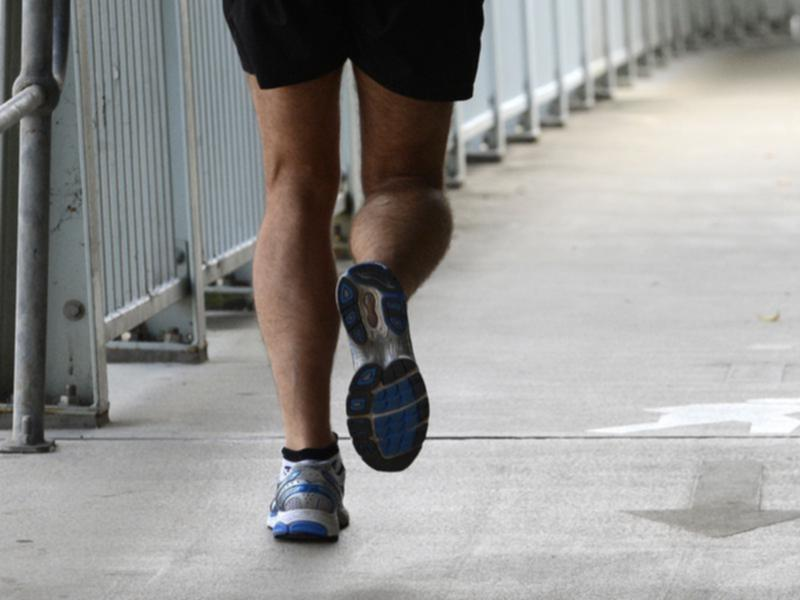New research suggests TWO physical indicators could be EARLY signs of dementia
By
- Replies 27
As we age, our bodies begin to show signs of wear and tear. We might start to feel more aches and pains, for example, or we might not be able to do the things we used to be able to with the same level of ease.
But while these physical changes are natural and expected as part of the ageing process, sometimes they can also be indicative of something more serious happening inside our bodies – like dementia.
According to recent research from Monash University, a combination of a poor gait and a weak hand grip may signal an increased risk of dementia long before any overt symptoms appear.
Over nearly five years, the study examined 18,000 originally healthy adults in their 70s or older.
Researchers discovered that a slow walking pace and a weak hand grip are two physical attributes that are associated with a 79 per cent greater chance of dementia and a 43 per cent increased risk of cognitive decline, which are two extremely early signs that someone may develop dementia without even being aware of it.

Poor hand grip and slow walking patterns are revealed to be related to the development of dementia. Credit: Klaus Vedfelt/Getty Images.
The experts also noted that this is the first study to evaluate the relationship between the two physical measurements' changes in cognitive function.
Monash University's School of Public Health and Preventive Medicine senior research fellow and lead author of the study Dr Suzanne Orchard said that the results provided significant evidence of a connection between ageing-related decreases in both cognitive and physical abilities.
She explained: 'Poor physical function may be a marker of future risk of cognitive decline and dementia, and thus, understanding this association could enhance early detection and prevention strategies.'
'While there are currently no cures for dementia, if identified early, treatment strategies can be implemented to slow its progression and manage the symptoms.'
She said that general practitioners and other healthcare providers might use straightforward grip and gait speed assessments.

The study shed light on the use of physical assessments for early ‘diagnosis’ of cognitive disease. Credit: AAP.
The study, which utilised data from a significant clinical experiment, also took into account several factors, including age, gender, and initial cognitive level.
In response to new research showing that up to 85 per cent of the more than 55 million people living with dementia may not receive post-diagnosis care, treatment, or support, leading dementia experts have lately advocated for specialised care to be recognised as a human right.
According to Professor Henry Brodaty of UNSW, the pandemic's strain on the world's healthcare systems has made it even more difficult for medical staff to offer sufficient post-diagnosis therapy, care, and support for dementia patients.
According to government figures, there could be as many as 472,000 Australians living with dementia in 2021.
Dementia is a devastating neurological condition that robs people of their memories and eventually their ability to function independently. There is no known cure.
However, early diagnosis and intervention can improve the quality of life for people with dementia and their caregivers, and may delay the progression of the disease.
There are many reasons why early diagnosis of dementia is important. First, early diagnosis allows people with dementia to plan for their future and make decisions about their care while they are still able to do so. It also allows caregivers to learn about the disease and plan for their own future. Early diagnosis also allows people with dementia to access treatments and support services that can improve their quality of life and delay the progression of the disease.
Feel free to share this article with your friends and loved ones so they can be informed of the early signs of dementia and provide the necessary support to you and other loved ones in their lives.
But while these physical changes are natural and expected as part of the ageing process, sometimes they can also be indicative of something more serious happening inside our bodies – like dementia.
According to recent research from Monash University, a combination of a poor gait and a weak hand grip may signal an increased risk of dementia long before any overt symptoms appear.
Over nearly five years, the study examined 18,000 originally healthy adults in their 70s or older.
Researchers discovered that a slow walking pace and a weak hand grip are two physical attributes that are associated with a 79 per cent greater chance of dementia and a 43 per cent increased risk of cognitive decline, which are two extremely early signs that someone may develop dementia without even being aware of it.
Poor hand grip and slow walking patterns are revealed to be related to the development of dementia. Credit: Klaus Vedfelt/Getty Images.
The experts also noted that this is the first study to evaluate the relationship between the two physical measurements' changes in cognitive function.
Monash University's School of Public Health and Preventive Medicine senior research fellow and lead author of the study Dr Suzanne Orchard said that the results provided significant evidence of a connection between ageing-related decreases in both cognitive and physical abilities.
She explained: 'Poor physical function may be a marker of future risk of cognitive decline and dementia, and thus, understanding this association could enhance early detection and prevention strategies.'
'While there are currently no cures for dementia, if identified early, treatment strategies can be implemented to slow its progression and manage the symptoms.'
She said that general practitioners and other healthcare providers might use straightforward grip and gait speed assessments.
The study shed light on the use of physical assessments for early ‘diagnosis’ of cognitive disease. Credit: AAP.
The study, which utilised data from a significant clinical experiment, also took into account several factors, including age, gender, and initial cognitive level.
In response to new research showing that up to 85 per cent of the more than 55 million people living with dementia may not receive post-diagnosis care, treatment, or support, leading dementia experts have lately advocated for specialised care to be recognised as a human right.
According to Professor Henry Brodaty of UNSW, the pandemic's strain on the world's healthcare systems has made it even more difficult for medical staff to offer sufficient post-diagnosis therapy, care, and support for dementia patients.
According to government figures, there could be as many as 472,000 Australians living with dementia in 2021.
Dementia is a devastating neurological condition that robs people of their memories and eventually their ability to function independently. There is no known cure.
However, early diagnosis and intervention can improve the quality of life for people with dementia and their caregivers, and may delay the progression of the disease.
There are many reasons why early diagnosis of dementia is important. First, early diagnosis allows people with dementia to plan for their future and make decisions about their care while they are still able to do so. It also allows caregivers to learn about the disease and plan for their own future. Early diagnosis also allows people with dementia to access treatments and support services that can improve their quality of life and delay the progression of the disease.
Feel free to share this article with your friends and loved ones so they can be informed of the early signs of dementia and provide the necessary support to you and other loved ones in their lives.







